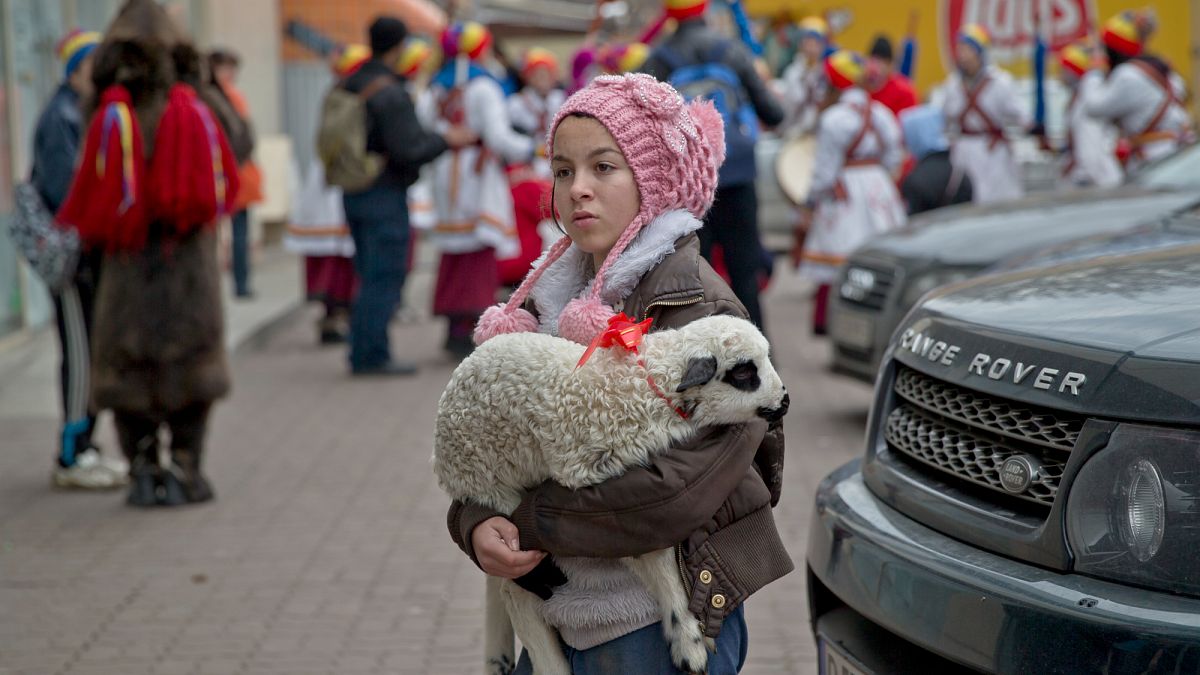Maria Teresa Horta, a Portuguese feminist author who helped shatter her conservative nation’s strictures on girls, died on Feb. 4 at her residence in Lisbon. She was 87.
Her dying was introduced on Fb by her writer, Dom Quixote. The Portuguese prime minister, Luis Montenegro, paid tribute to her on X, calling her “an vital instance of freedom and the wrestle to acknowledge the place of ladies.”
Ms. Horta was the final surviving member of the celebrated writers often called the “Three Marias,” who collectively wrote the landmark 1972 ebook “Novas Cartas Portuguesas” (“New Portuguese Letters”). A set of letters the ladies wrote to 1 one other about their issues as girls in Portugal, it opened up a world of repressed feminine sexuality, infuriated the nation’s ham-fisted dictatorship and led to their arrest and felony prosecution on fees of indecency and abuse of freedom of the press.
“To feminists world wide, in addition to to champions of a free press, the police motion towards the Portuguese girls in June 1972 was an outrage that slowly grew to become the main target of a global protest motion,” Time journal wrote in July 1973.
The Three Marias — Ms. Horta, Maria Isabel Barreno (1939-2016) and Maria Velho da Costa (1938-2020) — grew to become worldwide feminist people heroes, and the ebook’s fame alerted the world to repression underneath the Portuguese dictatorship. Simone de Beauvoir, Marguerite Duras and Adrienne Wealthy had been among the many writers who declared their public assist. The Nationwide Group for Girls voted to make the case its first worldwide feminist trigger.
The case was not Ms. Horta’s first brush with controversy.
In 1967 she had been “crushed on the street” after the publication of her breakthrough quantity of poetry, “Minha Senhora de Mim” (“My Girl of Me”), she informed her biographer Patrícia Reis in 2019. That ebook “challenged one thing deeply rooted on this nation,” she mentioned: “the silencing of feminine sexuality.”
Frequent knocks on the door by the Portuguese secret police grew to become a part of her life.
The themes of her work grew from what she characterised as a twin oppression: being a lady in Portugal’s male-dominated society and rising up in a police state.
“I used to be born in a fascist nation, a rustic that stole liberty, a rustic of cruelty, prisons, torture,” she informed an Italian interviewer in 2018. “And I understood very early on that I couldn’t stand for this.”
She additionally wouldn’t stand for the oppression of ladies in Portugal’s conventional macho tradition. “Girls are crushed or raped simply as a lot by a physician, a lawyer, a politician, whoever, as by a employee, a peasant and so forth,” she informed the Lisbon day by day Diário de Notícias in 2017. “Girls have at all times been crushed and have at all times been raped. Individuals don’t contemplate the violence that goes on in mattress, within the sexual act with their husband.”
In 1971, these preoccupations impressed Ms. Horta to begin assembly each week with two pals and fellow authors, Ms. Barreno and Ms. da Costa, to share written reflections on the frequent themes that troubled them.
They had been impressed by a traditional work from the seventeenth century, “Letters of a Portuguese Nun,” supposedly written by a younger girl shut up in a Portuguese convent to the French cavalry officer who had deserted her. Students now imagine the work was fiction, however its highly effective expression of pent-up longing and frustration resonated with the three Marias.
Just like the nun within the ebook, they used letters to 1 one other, in addition to poems, to precise their unhappiness as girls of their early 30s, educated by nuns, married and with kids, in a Lisbon stifling underneath a 35-year dictatorship, inflexible Catholicism and ill-judged colonial wars in Africa.
After they printed the writings as “New Portuguese Letters,” they vowed by no means to disclose to outsiders, a lot much less the police, who had written what.
“Their views and natures had been far aside,” Neal Ascherson wrote in The New York Evaluate of Books in a evaluation of the 1975 English translation, titled “The Three Marias.” “Maria Isabel the good, Maria Teresa the gaudiest persona, Maria Fátima the one who swerved away from pure feminism towards social and psychological analyses of a complete individuals’s oppression.”
What united them was a repressed rage on the situation the ladies discovered themselves in.
“They wished the three of us to sit down in parlors, patiently embroidering our days with the numerous silences, the numerous delicate phrases and gestures that customized dictates,” one letter says. “However whether or not or not it’s right here or in Beja, we now have refused to be cloistered, we’re quietly, or overtly, stripping ourselves of our habits rapidly.”
One other letter says, “We now have additionally gained the correct to decide on vengeance, since vengeance is a part of love, and love is a proper lengthy since granted us in follow: training love with our thighs, our lengthy legs that expertly fulfill the train anticipated of them.”
Though Mr. Ascherson discovered the ebook “usually maddeningly imprecise, self-indulgent and flatulent,” he mentioned that “the place it’s exact, the ebook nonetheless bites” and “the place it’s erotic, it’s neither exhibitionist nor coy however nicely calculated to the touch the thoughts by means of emotion.”
Just a few Portuguese reviewers welcomed it as “courageous, daring and violent,” because the writer Nuno de Sampayo put it within the Lisbon newspaper A Capital. They predicted a troublesome reception.
Prime Minister Marcello Caetano tried to place the authors in jail, calling them “girls who disgrace the nation, who’re unpatriotic.”
On Might 25, 1972, the state press censor banned the ebook. The subsequent day it was despatched to the police division in Lisbon. When the authors’ trial opened in 1973, the gang was so nice that the choose ordered the courtroom cleared.
In Might 1974, almost two years after their arrests and two weeks after the Portuguese dictatorship was overthrown, the Three Marias had been acquitted.
Choose Artur Lopes Cardoso, who had been overseeing the case, grew to become a sudden convert, declaring the ebook “neither pornographic nor immoral.”
“Quite the opposite,” he mentioned, “it’s a murals of excessive stage, following different artworks produced by the identical authors.”
Maria Teresa de Mascarenhas Horta Barros was born in Lisbon on Might 20, 1937, the daughter of Jorge Augusto da Silva Horta, a outstanding physician and a conservative who supported the dictatorship, and Carlota Maria Mascarenhas. Her paternal grandmother had been outstanding within the Portuguese suffragist motion.
Maria attended Filipa de Lencastre Excessive Faculty, graduated from the School of Arts on the College of Lisbon and printed her first ebook of poetry at 23. She went on to put in writing almost 30 extra, in addition to 10 novels.
She was additionally a critic and reporter for a number of newspapers and the literary editor of A Capital.
Within the Nineteen Eighties, Ms. Horta edited the feminist journal Mulheres, which was linked to the Portuguese Communist Social gathering. She was a member of the get together from 1975 to 1989.
Regardless of the style — poetry, fiction or journalism — she thought-about writing a public obligation.
“The duty of a poet is to not be in an ivory tower; it’s not to be remoted however to be amongst individuals,” she informed the web journal Guernica in 2014. “As a journalist, I by no means remoted myself. I used to be a journalist at a day by day newspaper and each day I went out on the road. Each day I had contact with individuals.”
Ms. Horta gained most of her nation’s prime literary prizes, however she brought on a stir in 2012 when she refused to simply accept the D. Dinis Award as a result of she objected to the federal government’s right-leaning politics.
She is survived by her son, Luis Jorge Horta de Barros, and two grandsons. Her husband, the journalist Luis de Barros, a former editor of the newspaper O Diário, died in 2019.
“Individuals ask me why I’m a feminist,” Ms. Horta informed Guernica in 2014. “As a result of I’m a lady of freedom and equality and it’s not attainable to have freedom on the planet when half of humanity has no rights.”
Kirsten Noyes and Daphné Anglès contributed analysis.








